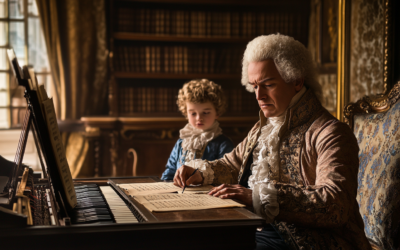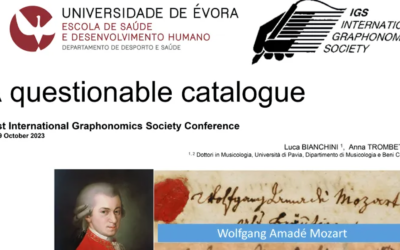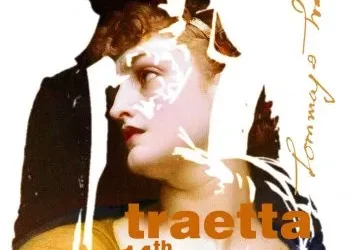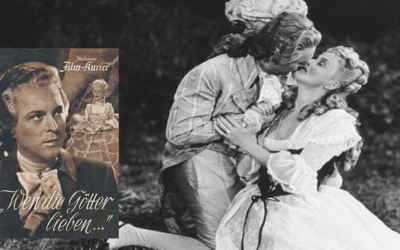A Revolutionary Encounter at Cremona Musica
Presenting Mozart: The Fall of the Gods at the World’s Most Prestigious Music Fair
We’re honored to have taken part in the remarkable atmosphere of Cremona Musica, a festival renowned worldwide for bringing together the finest names in music and lutherie. It’s here, at this grand fair, that we presented our latest work, Mozart: The Fall of the Gods. This book is the culmination of our research into Mozart’s true legacy, seeking to unravel the myth and bring clarity to his legacy with documented sources and in-depth analysis.
Mozart: The Fall of the Gods
This book offers a fresh and critical look at the life of Wolfgang Amadeus Mozart, challenging the myths that have surrounded him for centuries. We strip away the romanticised image of the “natural genius” and delve into the contradictions within Mozart’s extensive biographies. Backed by nearly 2,000 meticulously sourced citations, this work invites readers to explore a deeper, more complex understanding of Mozart. Perfect for those who wish to question the traditional narrative, this biography is a must-read for serious music lovers and historians.
"Cremona Musica: a global fairground where excellence meets exchange, and every voice is invited to the conversation."
@MozartrazoM
We’re honored to have taken part in the remarkable atmosphere of Cremona Musica, the world’s leading music fair and a global hub for musicians, luthiers, and music enthusiasts. Recognized as the premier international gathering for fine instruments and music professionals, Cremona Musica represents the pinnacle of musical excellence and innovation. To be invited to present at this prestigious event is a source of great pride for us, and we are grateful for the opportunity.
Our presentation of Mozart: The Fall of the Gods – Part Two was met with an exceptional response. Engaging with a diverse audience, we shared insights from our work and encouraged open discussion. This fair offers more than an exhibition space; it’s a unique arena for the respectful exchange of ideas and in-depth dialogue that pushes the boundaries of conventional musical scholarship.

Our second conference at Cremona Musica focused on the fascinating legacy of the Neapolitan school, specifically the study of partimenti, a unique pedagogical tool that influenced generations of composers. Alongside internationally acclaimed guitarist and soloist Maestro Edoardo Catemario, we explored the rich heritage of these musical exercises, illustrating their importance with select examples. The Maestro’s expertise brought new depth to our discussion, capturing the enduring relevance of the Neapolitan method and its influence on classical music.
Cremona Musica’s world-renowned reputation is built not only on its unmatched gathering of instruments and exhibitors but also on its high-quality events, featuring over two hundred performances, conferences, and masterclasses each year. For us, this fair was not merely a showcase but a milestone moment of dialogue and mutual enrichment. We extend our gratitude to the organizers, our fellow presenters, and the vibrant audience that made this year’s event truly memorable.
You May Also Like
K.143: A Recitative and Aria in the Shadows of Doubt
K.143 is a prime example of how Mozart scholarship has turned uncertainty into myth. With no definitive evidence of authorship, date, or purpose, this uninspired recitative and aria in G major likely originated elsewhere. Is it time to admit this is not Mozart’s work at all?
The Enigma of Mozart’s Symphony K.73
The Symphony in C Major K.73 has long puzzled Mozart scholars. Touted as a youthful work of prodigious talent, its origins are murky at best. The title “Symphony,” inscribed on the first page of the autograph, is devoid of the composer’s name, casting immediate doubt on its attribution to Wolfgang Amadeus Mozart. Was this truly his work, or is the Symphony yet another victim of overzealous attribution?
Mozart’s Thematic Catalogue Exposed as a Forgery
A groundbreaking forensic analysis reveals that Mozart’s thematic catalogue, long thought to be his own work, is a posthumous forgery. This discovery, detailed in Mozart: The Construction of a Genius, turns centuries of Mozart scholarship on its head, demanding a re-examination of his legacy.
Bologna Connections
Quirino Gasparini’s rediscovered Mitridate aria takes centre stage in Bern and Basel, shedding light on Mozart’s reliance on this forgotten composer.
International Traetta Award
We are thrilled to announce that the 14th International Traetta Award has been bestowed upon Anna Trombetta and Luca Bianchini. This prestigious recognition honours their outstanding dedication to musicological research on primary sources of the European musical repertoire, offering significant contributions to reshaping the historiography of 18th-century music.
A Legacy Rewritten by the Shadows of History
Mozart’s image, often regarded as a universal symbol of musical genius, was heavily manipulated by the Nazi regime, a fact largely ignored in post-war efforts to “denazify” German culture. From propaganda-driven films to anti-Semitic narratives, Mozart’s legacy is far more complex and troubling than we are often led to believe.







